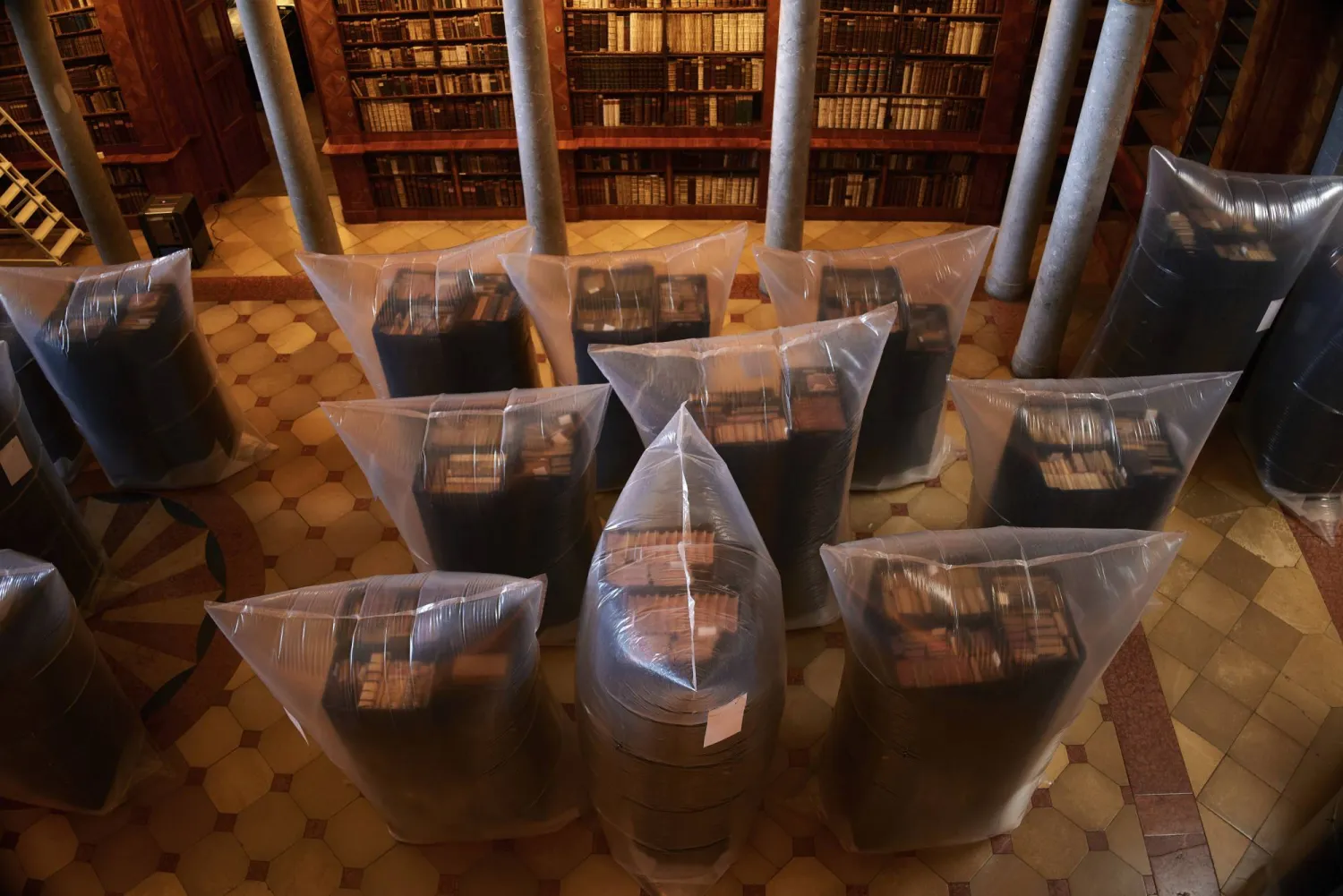Hungary’s Oldest Library Takes Emergency Action to Preserve Cultural Heritage
At the Archabbey of Pannonhalma, a thousand-year-old Benedictine monastery in northwestern Hungary, conservation teams are racing against time to save nearly 100,000 books from a beetle infestation. The monastery, a UNESCO World Heritage site, holds around 400,000 volumes, including codices and manuscripts from as early as the 13th century.
The culprit, the drugstore beetle (Stegobium paniceum), typically feeds on dried foods but is also attracted to the adhesives used in book bindings. The infestation was discovered during a routine cleaning when unusual dust and holes in book spines raised alarms.
Disinfection Process Using Oxygen-Free Environment
To eliminate the pests, books are being sealed in airtight plastic bags filled with pure nitrogen for six weeks. The oxygen-free atmosphere is expected to kill all active insects. Each book will be examined and cleaned before being returned to its place. Damaged items will be set aside for later restoration.
Although the rarest and most valuable books have not been affected, any loss within the collection is seen as a setback to Hungary’s cultural, historical, and religious legacy.
Climate Change May Be Fueling Insect Spread
Experts involved in the restoration believe rising temperatures may have contributed to the outbreak. Warmer conditions allow beetles to complete more life cycles annually, increasing infestation risks.
The abbey’s library is expected to reopen early next year. Monastic tradition dictates the careful preservation of its contents, treating each item with the reverence of sacred objects, in accordance with centuries-old Benedictine rules.







